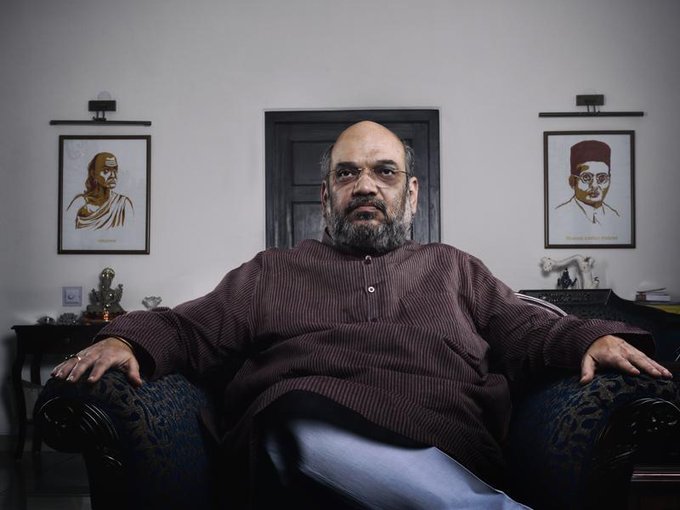Canada has publicly accused India’s Home Minister, Amit Shah, of leading an intelligence and intimidation campaign against Sikh separatists on Canadian soil. These allegations are the latest development in an ongoing diplomatic standoff between Canada and India, which has deepened in recent months following the assassination of a Sikh separatist leader in Canada and Canada’s allegations of India’s involvement.

Background
The dispute between Canada and India has its roots in Canada’s significant Sikh population, some of whom support Khalistani separatism, a movement advocating for an independent Sikh homeland. While Canada has a history of providing a platform for freedom of expression, including that of the Sikh diaspora, India perceives such activities as a direct threat to its territorial integrity. Canada claims that, in response, India has adopted aggressive measures, allegedly involving intimidation, intelligence gathering, and even planned assassinations targeting Sikh separatists.
- Trudeau’s Allegations: In 2023, Canadian Prime Minister Justin Trudeau alleged that Indian government agents were complicit in the assassination of Hardeep Singh Nijjar, a prominent Sikh leader and supporter of the Khalistan movement. This allegation ignited a diplomatic firestorm, leading to reciprocal expulsions of diplomats and strained relations.
- Role of Amit Shah: Canadian Deputy Foreign Minister David Morrison recently testified to Canada’s national security committee, where he revealed that Amit Shah, India’s Union Home Minister and a close ally of Prime Minister Narendra Modi, allegedly orchestrated a campaign targeting Sikh separatists in Canada.
- Washington Post’s Role: The Washington Post initially reported that a high-ranking Indian official was connected to intelligence operations against Sikh separatists. David Morrison later confirmed that this unnamed official was indeed Amit Shah. However, he did not provide evidence to substantiate the claim, which has fueled skepticism.


Detailed Allegations
- Intelligence Operations and Surveillance: Morrison’s testimony included claims that Canadian authorities had identified Indian operatives conducting surveillance on Sikh separatist activists. These operatives reportedly used both diplomatic channels and local proxies to gather intelligence on Canadian Sikh communities.
- Involvement of Criminal Networks: According to a statement by the Royal Canadian Mounted Police (RCMP), Indian diplomats in Canada have allegedly collaborated with criminal groups linked to the incarcerated Indian gangster Lawrence Bishnoi. The RCMP claimed that these criminals were used to intimidate and threaten Canadian nationals, particularly those supporting Khalistani separatism.
- Assassination Plot in the U.S.: Canada is not alone in its concerns. The United States also recently announced charges against an Indian government employee, Vikash Yadav, who allegedly coordinated an attempted assassination of a Sikh separatist leader in New York City. This revelation has increased concerns about cross-border political violence and added a layer of international significance to Canada’s accusations.
Canada’s Evidence and India’s Denial
- Canadian Sources: Canadian officials have repeatedly stated they have provided evidence of Indian involvement to their counterparts in New Delhi. While the specifics of this evidence have not been disclosed publicly, it purportedly includes intercepted communications and surveillance records.
- India’s Response: Indian government officials have categorically denied Canada’s accusations. India’s embassy in Ottawa dismissed the allegations as “absurd” and has accused Canada of harboring separatists. The Indian government maintains that it has not received any credible evidence to back Canada’s claims.
- Diplomatic Fallout: In response to the accusations, India recalled its high commissioner from Ottawa and declared six Canadian diplomats personae non gratae. This move was reciprocated by Canada, leading to a significant reduction in diplomatic engagement between the two countries.
Escalating Diplomatic Tensions
- Increased Public Statements: Both governments have taken to making public statements regarding the allegations. Nathalie Drouin, Canada’s national security advisor, confirmed that Canadian officials intentionally disclosed details to the Washington Post as part of a media strategy aimed at countering what they consider “disinformation” from India.
- Diplomatic Channels and Expulsions: The diplomatic crisis has severely affected official communication. Both countries have reduced their diplomatic staff, affecting routine consular and visa services for nationals. This fallout particularly impacts Canada’s large Indo-Canadian community, which relies on both countries’ consular services.
- International Implications: The allegations have raised international concerns about cross-border political violence. Canada’s appeal to allies and its decision to go public with the accusations signal an attempt to rally support and highlight the issue of political interference in foreign countries.
| Specification | Details |
|---|---|
| Main Allegation | Canadian officials allege Amit Shah ordered an anti-Sikh campaign in Canada |
| Key Canadian Officials Involved | Deputy Foreign Minister David Morrison; PM’s National Security Advisor Nathalie Drouin |
| India’s Response | Denies allegations, recalls high commissioner, expels Canadian diplomats |
| Major Incident | Alleged assassination of Hardeep Singh Nijjar, 2023 |
| U.S. Connection | Separate U.S. case of alleged Indian assassination plot in New York |
| Source of Allegations | Testimony by Canadian officials, Washington Post’s report |
| Impact on Diplomacy | Reduced diplomatic staff, strained relations, limited consular services |
| Canadian Community Affected | Sikh-Canadian population, Indo-Canadian community |
| Long-term Consequences | Possible impact on Canada-India trade, diaspora relations, and regional security |
Conclusion
The accusations against Amit Shah have led to one of the most severe diplomatic crises between Canada and India in recent history. Both nations have taken uncompromising stances, with Canada emphasizing its belief in free expression and civil liberties, and India stressing its commitment to national sovereignty and security. The impact of this confrontation could extend beyond diplomatic circles, affecting the lives of Canadians and Indians alike.


